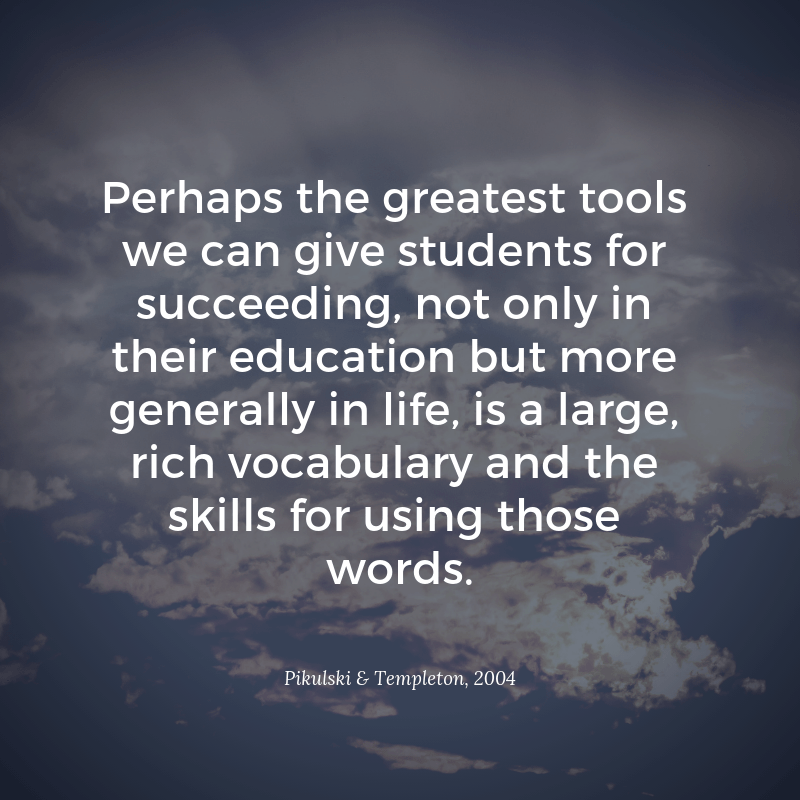Your child’s vocabulary is not a natural outcome of their age, or the number of years they have spent at school. While your child may incidentally learn some words as they progress through school, other useful and important words do not necessarily teach themselves.
Parents can support their child to develop their vocabulary by modelling high quality language and incorporating vocabulary building into instructions and conversations. One way you can do this is by using parallel language. Parallel language is where a sophisticated vocabulary word is used to describe an action or to give an instruction and a definition or a more basic synonym is added. Some examples are:
‘Please refrain from running in the hallway: please don’t run.’
‘Don’t procrastinate on tidying your room: that means don’t keep putting it off.’
‘Rivers have their genesis…their beginning…in mountain streams.’
Teachers at Unley Primary are working hard to develop students’ vocabulary knowledge to support our whole-school focus on improving writing. We encourage you to ask your child a new word they have discussed at school this week. Also, the following list may help you to consider ways you can further support your child’s vocabulary learning.
Factors that influence a child’s vocabulary development:
- Opportunities to listen to, and speak with, a range of people about experiences, feelings, visuals, print and digital texts. Please note that instructional language from parents and teachers is most often procedural with simple words used for explanations and requests, so these everyday interactions may not build students’ vocabularies.
- Listening to an adult read fiction and non-fiction texts aloud, especially when adults clarify meanings of important words.
- Reading many fiction and non-fiction texts. As students read more words they are better able to make connections between them. Teachers cannot compensate for lack of reading practice.
- An increasing general knowledge about the world supports students in extending their vocabulary.
- Understanding a word’s multiple meanings. For example, when reading the word ‘back’ most readers might think about the anatomical back. However, it is context that defines some words and back can have numerous meanings (for example, She will back the car. I’ll make a back-up. He will always back the underdog. Back of beyond. Redback spider).
- Parents having an interest in words and showing enthusiasm for learning new vocabulary.
- Multiple interactions with words so new words become part of students’ personal vocabularies.
This article references the work of Anne Bayetto, Lecturer, School of Education, Flinders University, who has published The BIG 6 of Reading articles for the Australian Primary Principals Association, available here.
